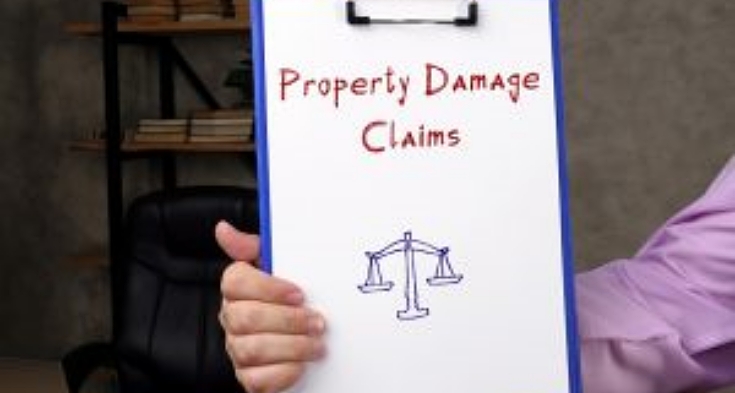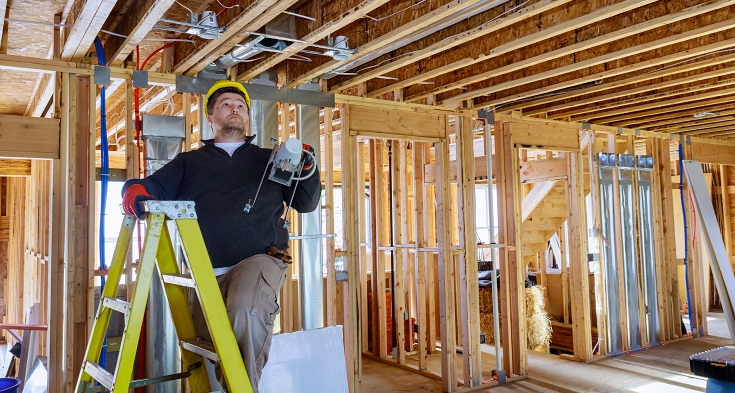
Navigating Florida’s regulatory environment can be daunting, especially when your facility or personnel face AHCA disqualification issues. At Elevate Legal Services, PLLC, we specialize in providing Legal Help for AHCA Exemptions, defending health care providers in AHCA exemption matters, DOH violation Administrative Complaints, and administrative law hearings. Whether you operate a healthcare clinic, a home health agency, or a Medicaid provider network, understanding your exemption rights and obligations is crucial to maintaining operations and upholding your professional standing.
If you or your organization is confronting an AHCA exemption issue or a potential disqualification, contact Elevate Legal Services, PLLC at 561‑770‑3335 or [email protected] for prompt legal support from a Boca Raton law firm with proven experience in administrative defense and AHCA compliance counsel.
Why Choose Elevate Legal Services, PLLC?
Elevate Legal Services, PLLC, provides dedicated and strategic advocacy for Florida health care providers navigating AHCA exemption and licensing matters. We are thoroughly versed in Florida Statutes (especially Chapter 435, Chapter 408, and administrative rules such as Rule 59A‑35, Rule 59A‑8.005, and background screening protocols). Our firm offers direct access to experienced attorneys who craft proactive compliance strategies and robust defense responses in AHCA or Department of Health administrative proceedings. Call us at 561‑770‑3335 or email [email protected] to speak with counsel who will protect your facility and personnel eligibility under Florida law.

Understanding AHCA Exemptions: What They Are and Why They Exist
Exemption from Licensure vs. Exemption from Disqualification
- Exemption from Licensure refers to entities—such as certain home‑health operations or cash‑pay health clinics—that qualify under Florida Statute 400.464(5) & (6) for specific licensure exemptions. These providers might not require a full AHCA license but must apply for a certificate of exemption, file the required application, pay fees, and renew biennially under administrative rules such as Rule 59A‑8.005 and 59A‑35.040
- Exemption from Disqualification applies to individuals—facility owners, administrators, executives, staff, or Medicaid provider principals—who are disqualified due to past criminal offenses listed in Florida Statute 435 but wish to work in AHCA‑licensed settings. AHCA or DOH may grant an exemption if the applicant provides clear and convincing evidence of rehabilitation
Who Needs an AHCA Exemption?
- Individuals with disqualifying criminal history working in AHCA-regulated facilities or seeking Medicaid provider enrollment, Medicaid managed care health plan involvement, or roles like administrator or CFO must apply for an exemption.
- Entities not seeking to secure reimbursement from insurance or Medicaid, such as cash‑pay-only clinics, may claim licensure exemption but must maintain registration and certificate status under AHCA protocols.
Why AHCA Exemptions Matter More Than You Think
Protecting Operations and Avoiding Administrative Complaints
- An unlicensed facility that incorrectly assumes a statutory exemption may become subject to administrative enforcement, inspector deficiency reports, fines, or license denial. Even operating without a proper certificate of exemption can trigger AHCA complaints under Chapter 408 enforcement.
- Failing to secure an exemption from disqualification for management personnel or Medicaid principals can result in disqualification letters, employment suspension, or Medicaid enrollment denials. The window to apply is sometimes limited—e.g., individuals hired before June 30, 2014, may continue working if they submit a timely exemption application within 30 days of a disqualification letter.
Minimizing Exposure to Licensure Delays and Hearings
- AHCA processes exemption applications and approves or denies within statutory timelines: exemption from disqualification decisions typically occur within 30 days of a complete file; certificate of exemption decisions for licensure must be made within 60 days for home health exemption.
- Delays or incomplete submissions can lead to withdrawn applications, fines, or revocation, forcing providers into costly administrative law hearings before the Division of Administrative Hearings under Section 120.57, F.S., and invoking deficiency notices or enrollment suspension.
Preserving Medicaid Enrollment Eligibility
- Medicaid provider principals and managers must have active exemption status to maintain provider enrollment. Without this, Medicaid can deny claims, recoup payments, or issue Administrative Complaints that require appeals or hearings.
The AHCA Exemption Application Process
Step 1 – Background Screening & Documentary Evidence
- Applicants must complete Livescan Level II background screening. Any disqualifying offense must be documented via certified court records, probation documentation, sentencing, and rehabilitation evidence such as character references.
Rehabilitation evidence may include education or counseling, community involvement, proof of restitution, and time elapsed since offense, depending on the severity of the crime and requirements of section 435.07, F.S.
Step 2 – Proper Application Filing
- Individuals must check the correct exemption box (e.g., Medicaid enrolment, owner/administrator, or managed care plan principal). Entities applying for clinic or home health exemption must use proper forms (AHCA Form 3110‑1009) and affirm qualifying criteria under statute and Rule 59A‑8.005.
Missing information triggers a notice of application deficiency; applicants have 21 days to cure or risk withdrawal and forfeited fees.
Step 3 – Agency Decision & Timeline
- AHCA must notify individuals within 30 days of a complete file whether the exemption is granted or denied. Entities seeking home health agency exemption have 60 days for approval or denial after complete submission.
- A denial allows for formal hearing requests within 21 days under Section 120.569, F.S., triggering administrative proceedings before DOAH (Division of Administrative Hearings). All disputed material facts must be stated as required by Rule 28‑106.201, F.A.C.

Common Challenges & Pitfalls Providers Face
Inadequate Rehabilitation Evidence
- AHCA expects “clear and convincing evidence”—mere passage of time is often insufficient. Applicants must compile explanation letters, professional references, and rehabilitation documentation. Without legal assistance, applicants may submit weak submissions and risk denial.
Scope Confusion Between AHCA and DOH Authority
- Licensed professionals working outside licensure scope may need an AHCA exemption rather than a DOH exemption. Wrong agency choice or misunderstanding can lead to delays or improper denial.
Expired or Unrenewed Exemptions
- Certificates of exemption from licensures expire biennially. If not renewed timely manners, providers become technically unlicensed. Those failing to report changes (ownership, location) risk enforcement or fines of up to $500 per day under statutes including s. 408.810(3), F.S.
Hiring Without Verifying Exempt Status
Facilities that allow disqualified personnel to work without an exemption application risk Administrative Complaints or enforcement. Moreover, if AHCA rescinds eligibility based on new background findings, the employer may face secondary liability.
How Legal Support Makes a Difference in Exemption Matters
Strategic Application Preparation & Benefit
- At Elevate Legal Services, PLLC, we guide clients through every step: identify the correct exemption category, compile court and rehabilitation evidence, prepare a persuasive submission, and monitor timing. We reduce the risk of denials or incomplete application withdrawals.
Representation in Administrative Hearings
- If AHCA issues a denial or Administrative Complaint alleging exemption violations or improper licensing, we represent providers in administrative law hearings under Florida’s Chapter 120 procedures. We advocate before DOAH, presenting legal arguments, evidentiary exhibits, and witness testimony.
Compliance Audits & Protocol Implementation
- We help clinic operators and health care entities conduct internal assessments of exemption status, ensure timely renewal, update policies for ownership or location changes, and build procedures to avoid recurrence of disqualification concerns.
Checklist for Providers Handling AHCA Exemptions
Exemption from Licensure (Entity-Level Checklist)
- Determine whether clinic or home‑health activities qualify under the statute for licensure exemption.
- File the correct AHCA application form and pay the required certificate fee.
- Include schedule of charges for cash‑pay patients as required by s. 400.9935(6), F.S.
- Renew certificate every two years and report any change of ownership or address 21 to 120 days in advance.
Exemption from Disqualification (Individual-Level Checklist)
- Have Livescan Level II screening completed and obtain criminal history report.
- Wait the required duration after sentencing (e.g., 2–3 years, depending on offense) before applying.
- Gather certified court records, probation discharge documentation, restitution receipts, references, and rehabilitation evidence.
- Submit a complete application within 30 days of a disqualifying letter if employed pre-2014; otherwise, apply as soon as possible.
- If denied, file a hearing request within 21 days under Rule 28‑106.201.
Final Thoughts & What To Do Next
AHCA exemptions are often misunderstood, but errors in eligibility or application can bring serious consequences: facility fines, license revocation, Medicaid enrollment disruption, and personnel disqualification. Providers must treat exemption processes as legal matters, not technicalities.
Elevate Legal Services, PLLC, stands ready to help you secure proper exemption status, navigate administrative filings accurately, renew certificates on time, or defend denial or complaint matters in hearings. Don’t let a simple omission jeopardize your practice or eligibility in Florida’s health regulatory regime.
If you need assistance with an AHCA exemption application, are facing denial of disqualification relief, or require representation in Administrative Complaint proceedings, contact Elevate Legal Services, PLLC now at 561‑770‑3335 or [email protected]. We offer tailored legal counsel to protect your rights and ensure smooth operations under Florida law.
Staying compliant matters deeply. Let Elevate Legal Services, PLLC, guide you through Florida’s exemption requirements with confidence and clarity.





